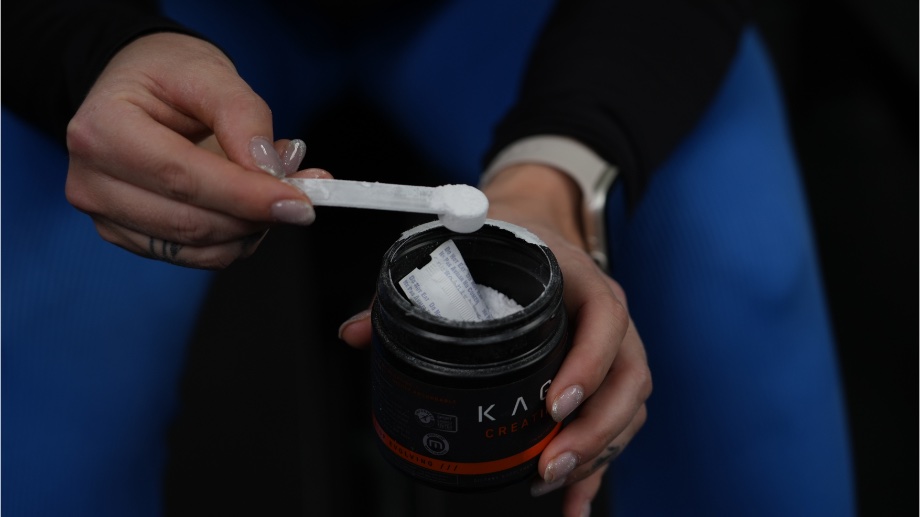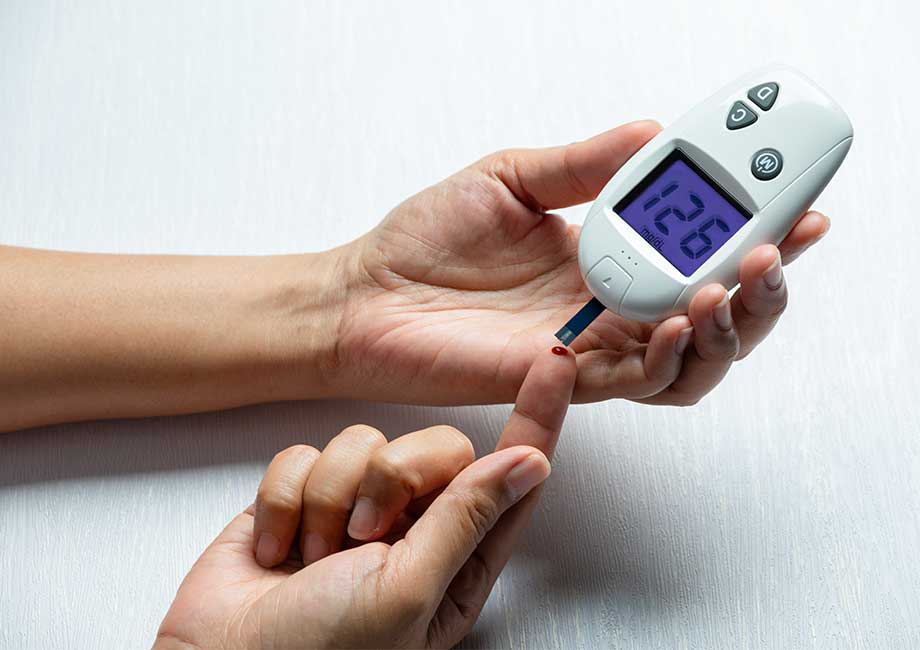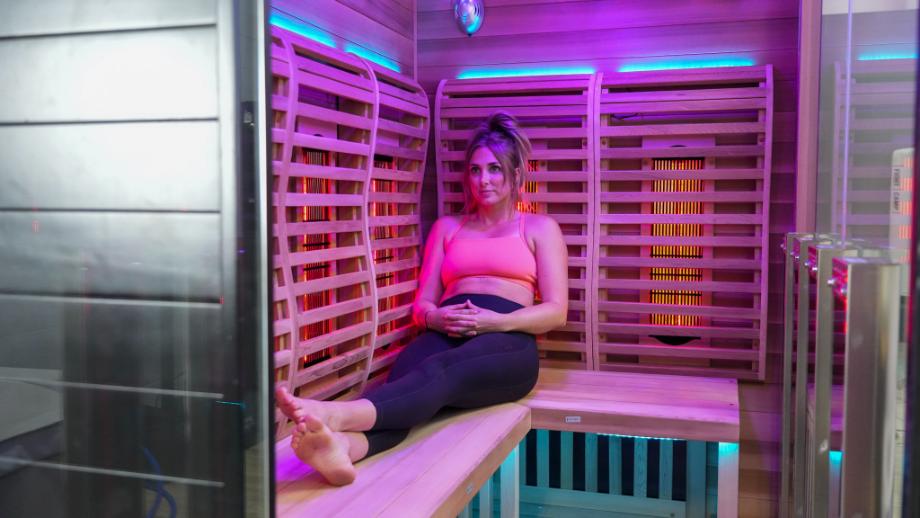Did you know creatine is one of the most popular and well-researched dietary supplements on the market? The International Society of Sports Nutrition1 (ISSN) took a stand in 2007, stating that creatine was safe and effective for exercise performance. For years, it’s been a common supplement among bodybuilders, powerlifters, and professional athletes alike.
But for the average home gym owner, you may be wondering one thing: Does creatine help build muscle? Yes, but buckle up because the answer is not as simple as drinking your favorite protein shake to help stimulate muscle protein synthesis.
Using my own experience with creatine (plus insights from two GGR expert panelists and registered dietitians) I’ll walk you through what creatine is, how it relates to the body’s energy storage system, and how it’s shown to increase muscle mass.
Medical disclaimer: This article is intended for educational and informational purposes only. It is not intended as a substitute for medical advice. For health advice, contact a licensed healthcare provider.
What Is Creatine?
While creatine is a dietary supplement, it’s also a natural compound2 found in your muscle cells. It’s made up of three nonessential amino acids: arginine, methionine, and glycine. This trio plays an important role in your body’s energy production, especially when it comes to maximal effort, explosive, and high-intensity activities (like weightlifting, sprinting, or jumping).
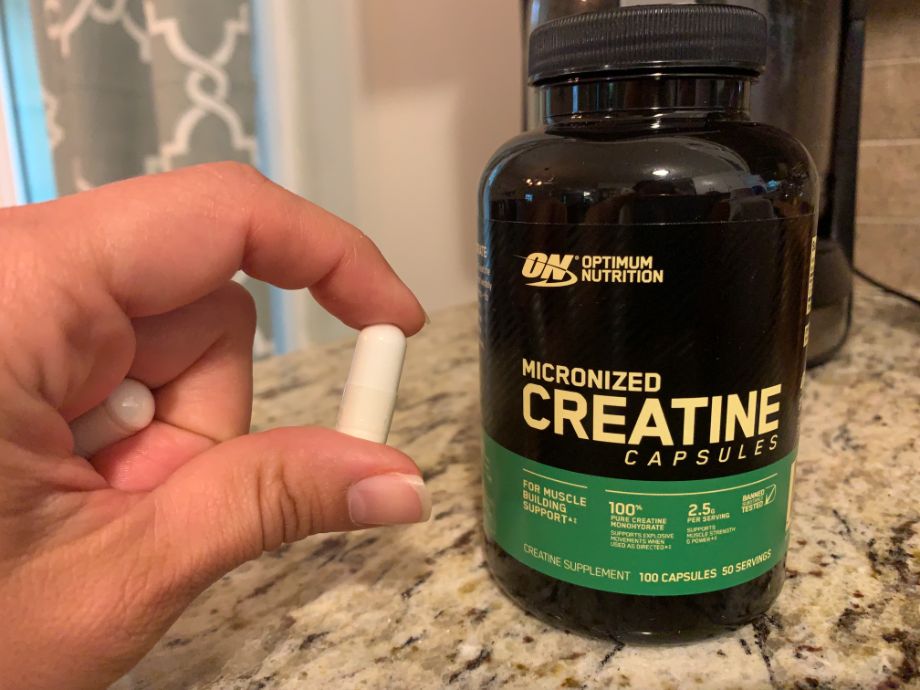
Your natural creatine stores come from two sources: animal proteins (like red meat, poultry, and fish) and a natural production from your liver, pancreas, and kidneys.
Creatine supplementation is most often in the form of creatine monohydrate, which is powdered or in capsule form. Creatine monohydrate supplements are often unflavored and can be added to the best pre-workout, BCAAs, whey protein, and carbohydrate supplements.
What Is Creatine Good For?
So, now you might be wondering why you should care about creatine? I will explain creatine benefits related to muscle growth, but I need to decode a few scientific terms to get there.
Creatine is a supplement that can help increase your body’s natural stores of creatine phosphate (aka phosphocreatine) if you participate in a physical activity, from mountain biking to Olympic weightlifting. Creatine phosphate is essentially the active form of creatine in your body and is mainly stored in the skeletal muscles.
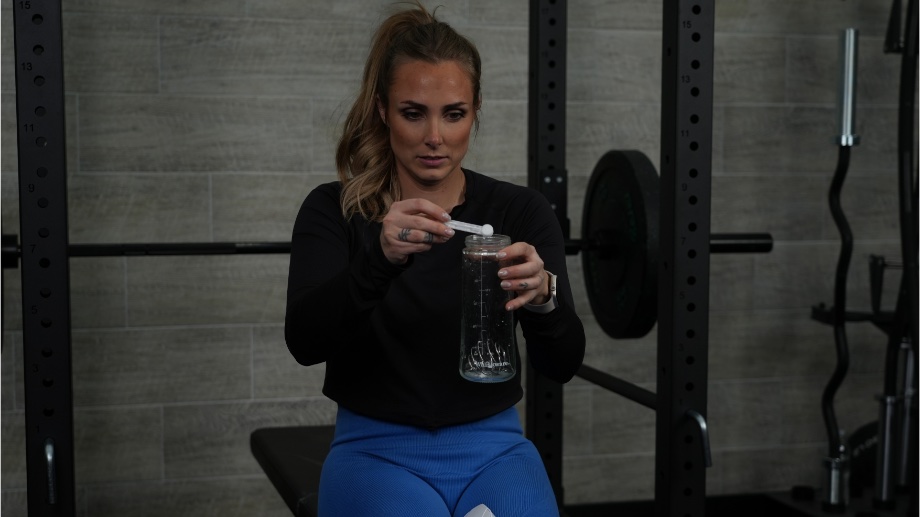
Creatine phosphate also helps the regeneration of adenosine triphosphate (ATP). OMG. ATP. WTF? I have no doubt you might be confused right now, but stay with me. ATP3 is essentially both an energy source and an energy storage center for your body on a cellular level. It’s often called the “energy currency” of the cell.
Because ATP is like an energy bank, it’s able to readily release energy (because it also stores it) for activities that require your fast-twitch muscles—like sprinting, jumping, and other explosive movements.
OK, you now know the basics of ATP. So, let’s summarize, then go back to creatine:
- Phosphocreatine helps muscle cells make more ATP.
- More ATP means more power during high-intensity exercise.
- More power means potentially sprinting faster, jumping higher, or lifting more weight.
RELATED: Is Creatine a Steroid?
How Can Creatine Help Build Muscle?
While creatine doesn’t directly stimulate muscle hypertrophy (aka muscle growth), as we just learned, it helps your muscles create more power. That additional power comes from your ATP energy bank. Performing movements with more power could translate to more muscle strength and muscle gain.
RELATED: Is Creatine a Protein?
An optimal energy bank may allow you to lift more weight, perform more repetitions, execute harder exercise variations, or complete your training sessions with less rest time. This isn’t a short-term solution for building muscle, but over time, lifting heavier loads and doing more repetitions can lead to bigger, stronger muscle fibers.
A Nutrients4 study from 2018 indicates that athletes with just four weeks of creatine supplementation three times per week showed increased maximal muscular strength, faster times on a 30-meter sprint, and changes in body composition through reduced body fat percentage. This study also found that creatine helped reduce muscle damage caused by the impact of strength training and conditioning.
RELATED: Does Creatine Help You Lose Weight?
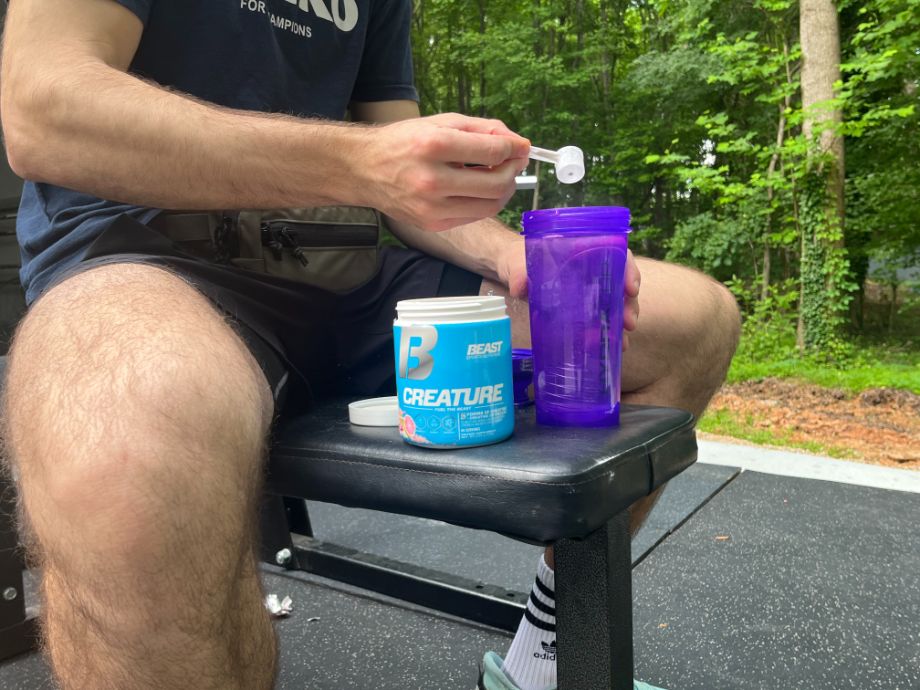
A recent Nutrients systematic review5 found that 16 different randomized control trials consistently showed positive effects of creatine supplements on muscle mass. Research participants in these trials were either given creatine supplements or a placebo.
However, this review notes that most of this research was done on young, healthy individuals and more research is still needed for older adults and folks with chronic health conditions.
Additionally, a common side effect of creatine supplementation is water retention within muscle cells, which may give the appearance of bigger muscles. The additional fluid in your cells may equate to weight gain, but know that it’s from water retention not body fat.
Registered dietitian Sharon Lehman says, “Creatine pulls water into muscles to help generate ATP, which gives you muscles an instant boost in size.” Plus, the extra water in your muscles can also help prevent muscle cramps due to better cell hydration.
Other Things To Know About Creatine
Are you ready to shop for the best creatine supplements and use creatine before your next workout? Before you get under that squat bar or bench press, allow me to cover the typical dosing protocol for creatine.
At this very moment, you may not have peak creatine levels stored up in your muscles. And that’s OK. According to Sharon Lehman, RD, by supplementing with 3 to 5 grams of creatine per day, you can maximize your creatine stores over the course of a few weeks.
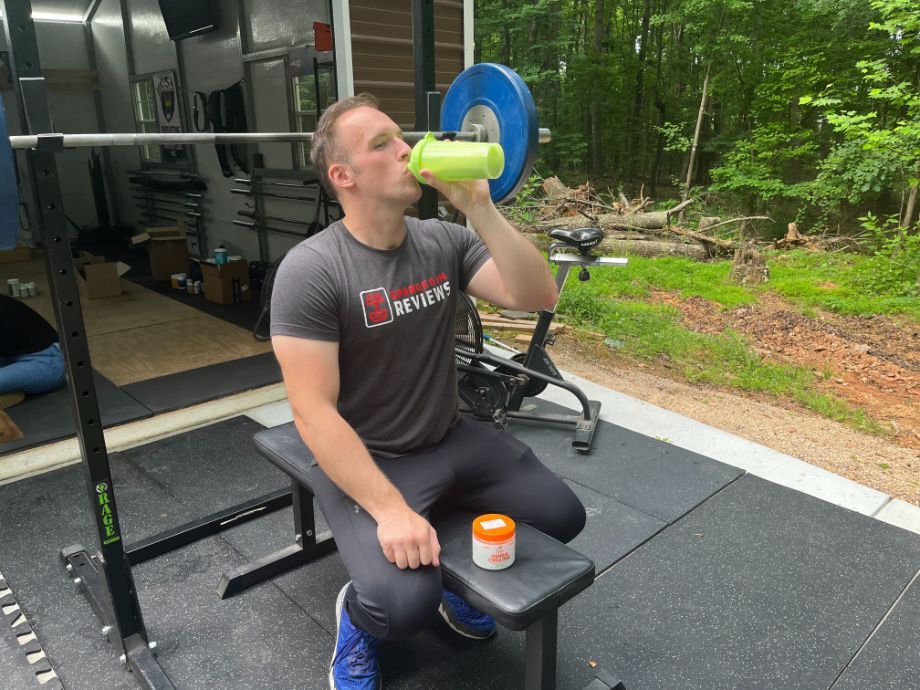
The other method to reach optimal creatine levels is to use a creatine loading phase. This usually involves supplementing with higher doses (around 20 grams per day) for about a week to rapidly increase your muscle creatine stores.
If you want more details on this, be sure to read our creatine monohydrate dosage guide where registered dietitian Destini Moody breaks down optimal dosing and provides more information on the creatine loading phase.
Risks of Creatine Supplementation
It’s worth noting that creatine is not ideal for folks with kidney disease or those at risk of dehydration. Folks with liver conditions and diabetes should also avoid creatine supplementation.
Does Creatine Help Build Muscle: Final Thoughts
Creatine can help build muscle in healthy individuals by increasing the energy storage in the body’s muscle cells, leading to better athletic performance, lifting more weight, and having more endurance.
All that to say, creatine is not a magic supplement. You’ll need to regularly use your muscle creatine storage with high-intensity activity to reap the benefits of creatine supplementation. So, if you participate in strength and conditioning-style training, adding creatine to your routine may help build muscle and aid recovery.
Does Creatine Help Build Muscle: FAQs
Does creatine actually build muscle?
Creatine is not responsible for muscle hypertrophy (the increase of muscle size); however, studies show4 that creatine helps store more energy in your muscles and provides your muscles with more power during high-intensity workouts.
Is creatine the fastest way to build muscle?
Creatine isn’t considered a rapid way to increase your muscle size. Creatine offers more short-term results with more power during workouts or athletic training, which can impact muscle strength and size over time.
Will creatine make your muscles look bigger?
Water retention within the muscle cells is a common side effect of creatine supplementation. Creatine can temporarily boost the size of your muscles, which typically fades once you stop supplementing with creatine.
How much creatine should I take a day to build muscle?
For creatine muscle store maintenance, the ideal supplementation is about 3 to 5 grams of creatine per day.
What is the difference between creatine and creatinine?
When creatine is broken down in your body, the byproduct is called creatinine.
These statements have not been evaluated by the Food and Drug Administration. This product is not intended to diagnose, treat, cure, or prevent any diseases.
References
- Buford TW, Kreider RB, Stout JR, et al. International Society of Sports Nutrition position stand: creatine supplementation and exercise. J Int Soc Sports Nutr. 2007;4:6. Published 2007 Aug 30. doi:10.1186/1550-2783-4-6
- National Center for Biotechnology Information. PubChem Compound Summary for CID 586, Creatine.
- Dunn J, Grider MH. Physiology, Adenosine Triphosphate. [Updated 2023 Feb 13]. In: StatPearls [Internet]. Treasure Island (FL): StatPearls Publishing; 2024 Jan-.
- Wang CC, Fang CC, Lee YH, Yang MT, Chan KH. Effects of 4-Week Creatine Supplementation Combined with Complex Training on Muscle Damage and Sport Performance. Nutrients. 2018;10(11):1640. Published 2018 Nov 2. doi:10.3390/nu10111640
- Wu SH, Chen KL, Hsu C, et al. Creatine Supplementation for Muscle Growth: A Scoping Review of Randomized Clinical Trials from 2012 to 2021. Nutrients. 2022;14(6):1255. Published 2022 Mar 16. doi:10.3390/nu14061255


